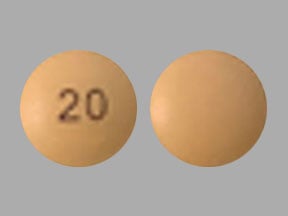
Aciphex Coupons & Savings Card – Discount Prices from $33.13
Brand for: Rabeprazole
My prescription
Edit
20MG, Rabeprazole (90 Tablet Delayed Releases)
Select pharmacy

CVS
$34.49
COUPON PRICE
Walmart
$33.13
COUPON PRICE
Walgreens
$34.92
COUPON PRICE
Albertsons
$35.87
COUPON PRICEAciphex savings card
Show this card to your pharmacist
Walmart
$33.13
BIN
ID
PCN
GRP
019876
LHB055E809
CHIPPO
LHX
Powered by
Related proton pump inhibitors prescriptions
More prescriptions for heartburn
Related proton pump inhibitors prescriptions
More prescriptions for heartburn
Price history for Aciphex (brand) & Rabeprazole (generic)
90 Tablet Delayed Releases, 20MG
Average retail price for Aciphex
Average retail price for Rabeprazole
Average SaveHealth price for Rabeprazole
Our price history data is based on aggregated prescription data collected from participating pharmacies in America. Our prescription data updates daily to reflect the latest price changes. If you notice a missing data point, it means there wasn't sufficient data available to generate a monetary value for that date.
Over the last 12 months, the average discount price of Aciphex is $105.92 using the SaveHealth savings card. That's an average savings of 88.16% on Aciphex with our discount card.
*Retail prices are based on pharmacy claims data, and may not be accurate when we don't have enough claims.
Aciphex (Rabeprazole) dosage forms
Dosage Quantity Price from Per unit 20MG 90 Tablet Delayed Releases $33.13 $0.37 20MG 7 Tablet Delayed Releases $4.38 $0.63 20MG 28 Tablet Delayed Releases $10.01 $0.36 20MG 30 Tablet Delayed Releases $10.54 $0.35 20MG 60 Tablet Delayed Releases $18.58 $0.31 20MG 500 Tablet Delayed Releases $71.80 $0.14 20MG 1000 Tablet Delayed Releases $117.30 $0.12
| Dosage | Quantity | Price from | Per unit |
|---|---|---|---|
| 20MG | 90 Tablet Delayed Releases | $33.13 | $0.37 |
| 20MG | 7 Tablet Delayed Releases | $4.38 | $0.63 |
| 20MG | 28 Tablet Delayed Releases | $10.01 | $0.36 |
| 20MG | 30 Tablet Delayed Releases | $10.54 | $0.35 |
| 20MG | 60 Tablet Delayed Releases | $18.58 | $0.31 |
| 20MG | 500 Tablet Delayed Releases | $71.80 | $0.14 |
| 20MG | 1000 Tablet Delayed Releases | $117.30 | $0.12 |
What is Aciphex prescribed for?
Aciphex is prescribed for the treatment of gastroesophageal reflux disease (GERD), duodenal ulcers, and conditions involving excessive stomach acid, such as Zollinger-Ellison syndrome. It is also used for the eradication of Helicobacter pylori infection in combination with antibiotics.
What is the most common side effect of rabeprazole?
The most common side effect of rabeprazole is headache.
Can you take AcipHex long term?
AcipHex, also known as rabeprazole, is a proton pump inhibitor used to treat certain stomach and esophagus problems. It can be taken long term under the guidance of a healthcare provider. Long-term use should be regularly evaluated by a healthcare professional to ensure it remains appropriate and to monitor for potential side effects, such as vitamin B12 deficiency or bone fractures.
Which one is better, omeprazole or rabeprazole?
The choice between omeprazole and rabeprazole depends on the specific needs and medical condition of the patient. Both medications are proton pump inhibitors (PPIs) used to reduce stomach acid and treat conditions like GERD, ulcers, and Zollinger-Ellison syndrome. Omeprazole is often used for its cost-effectiveness and availability, while rabeprazole may be preferred for its potentially faster onset of action in some cases. The decision should be based on the patient's medical history, response to treatment, and any potential side effects. It is important for patients to consult with their healthcare provider to determine the most appropriate medication for their condition.
What is the over-the-counter equivalent of Aciphex?
There is no direct over-the-counter equivalent to Aciphex (rabeprazole), which is a prescription medication used to treat certain stomach and esophagus problems. However, over-the-counter options like omeprazole (Prilosec OTC) or lansoprazole (Prevacid 24HR) are available and may be used for similar conditions. It is important to consult with a healthcare provider to determine the most appropriate treatment.
